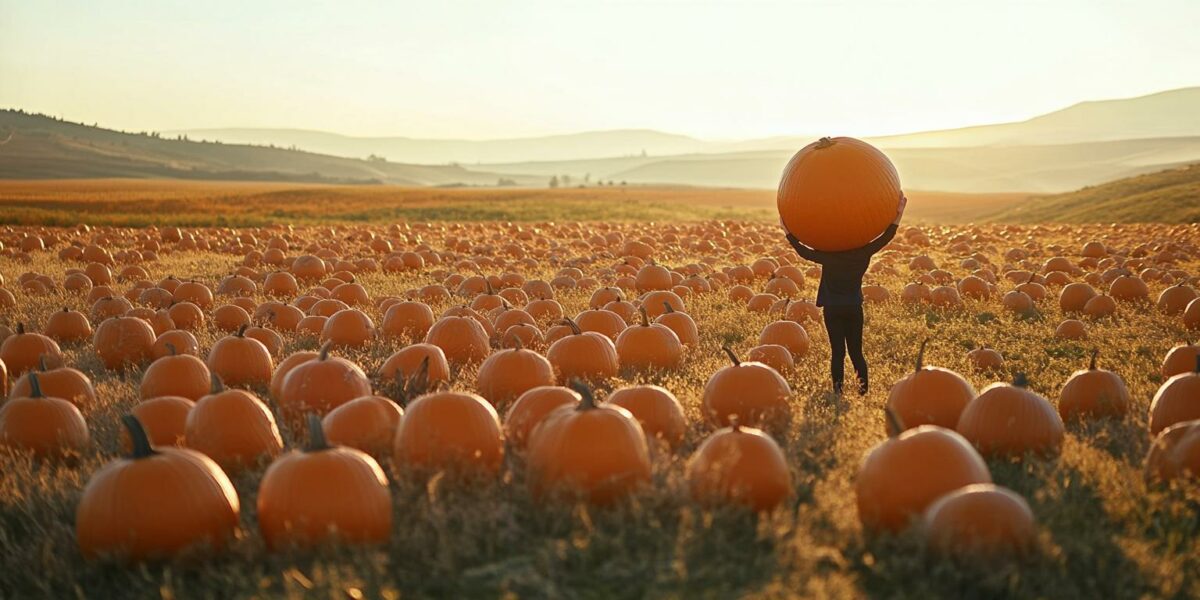The Hidden Environmental Cost of Halloween Pumpkins
Halloween wouldn’t be complete without the traditional pumpkin carving. Each year, millions of households in the U.S. participate in this festive activity. However, there is an unexpected environmental downside to this tradition that many are unaware of.
After the Halloween festivities, discarded pumpkins often end up in landfills. Here, they decompose and release methane, a potent greenhouse gas that significantly contributes to climate change.
Methane is at least 28 times more effective than carbon dioxide in trapping heat in the atmosphere over a century. This makes the environmental impact of decomposing pumpkins particularly concerning.
According to the Environmental Protection Agency, food waste, including pumpkins, contributes to a large portion of methane emissions from landfills. This gas is a major driver of global warming.
Methane Emissions and Climate Change
Landfills produce gas that is about half methane and half carbon dioxide, along with water vapor and other organic compounds. The process of methane production is driven by microorganisms in the absence of oxygen.
The United Nations Environment Programme has emphasized that reducing methane emissions could have an immediate impact on climate change, as methane breaks down in the atmosphere in about a decade.
The Department of Agriculture notes that reducing food waste could help address climate change and mitigate disruptions in the supply chain. This highlights the importance of finding sustainable solutions for pumpkin disposal.
To enhance the understanding, here are some quick facts:
- Methane accounts for approximately 30% of global warming since pre-industrial times.
- Food waste contributes more methane emissions than any other landfilled materials.
- Reducing food waste can have a direct impact on climate change.
Sustainable Alternatives for Pumpkin Disposal
There are several ways to prevent pumpkins from contributing to landfill methane emissions. Composting is one effective method. When composted, pumpkins decompose with sufficient oxygen, reducing methane production and enriching the soil with nutrients.
Another option is to consume pumpkins and their seeds. Pumpkins are a nutritious source of vitamin A and can be incorporated into various recipes, reducing waste and providing health benefits.
Pumpkins can also be fed to some animals or donated to farms, which can further reduce the environmental impact. These alternatives help keep pumpkins out of landfills and support sustainable practices.
The U.S. sells around two billion pumpkins annually, with a significant portion grown in six states. This high volume of pumpkin production highlights the importance of finding environmentally friendly disposal methods.
The Role of Agriculture and Climate Change
Agriculture is a major source of methane emissions. Pumpkins, being an agricultural product, are part of this equation. Climate change, driven by emissions like methane, poses risks to crop yields through drought, heat, and disease.
Farmers face difficult decisions about when to harvest pumpkins to minimize losses from weather extremes and disease. These challenges are exacerbated by the ongoing climate crisis, which affects the stability of agricultural production.
Addressing methane emissions from food waste, including pumpkins, can play a role in mitigating some of these impacts. By adopting sustainable practices, we can reduce the environmental footprint of our Halloween traditions.
With increased awareness and action, we can enjoy Halloween festivities while being mindful of their environmental implications. Sustainable pumpkin disposal methods are a step towards a healthier planet.



ethanluminary
Does anyone have a good composting guide? I’d like to start but have no idea where to begin.
ArianaWanderlust
Thanks for raising awareness on this issue. Time to rethink our Halloween traditions!
audreyunity0
Can we get more tips on how to use pumpkins in recipes? I love making pumpkin soup!
Tiger
Why isn’t this more widely known? Seems like something that should be taught in schools.
David
OMG, never thought my jack-o-lantern could be causing climate change! 😱
Sophia
Is there a way to measure the methane emissions from our own pumpkin waste?
savannah_wanderer
Great article, but what can we do if we don’t have access to composting facilities?
sasha
This is so interesting. What are some other common foods that contribute to methane emissions?
auroraradiance
Wow! I had no idea pumpkins could be this harmful to the environment. Thanks for the info!